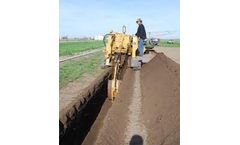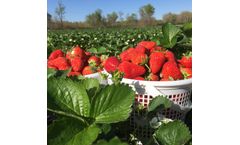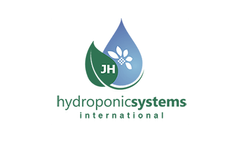Irrigation Water Requirements Articles & Analysis
16 articles found
In the arid and semi–arid west, irrigation is required to obtain economic alfalfa yields. Because alfalfa is a perennial crop with a potentially long growing season, it can use a substantial amount of water. ...
This allows for unseasonably hot weather, or make-up capacity if you get behind in meeting your crops' irrigation needs. Water use requirements of subsurface drip may not differ significantly from conventional uses. ...
Fruit growers among other agriculture growers across the world are looking to surmount the challenge of increasing crop production with a dramatic reduction of synthetic agrochemical use and a reduction of environmental nutrient leaching in ground water and surface water sources. Many growers are pursuing ways to integrate more sustainable agriculture practices ...
The future of modern agriculture goes through the optimal use of one of the most limited and most important resources: water. In the coming days it will be essential that the agriculture adopt farming methods capable of maximizing the use of water and this is achieved with the assistance of the hydroponic crops. If we establish a comparison between the amounts ...
Management and scheduling of irrigation water requires consideration of evapotranspiration, one of the most important hydrological variables. ...
A study was carried out to assess the impact of climate change on yield and irrigation water requirement of these cereal crops in Bhaktapur, Nepal. Laboratory and soil-plant-air-water analysis showed silt-loam being the most dominant soil type in the study area. ...
A geographic information system (GIS) based graphical user interface for irrigation management within an ArcGIS customization has been developed using Visual Basic for Applications for estimation of spatially distributed irrigation water requirements. It is capable of providing an appropriate framework for manipulating, ...
Second, when water supplies are constrained farmers allocate land to different crops based on their total returns, not on the irrigation water requirements. The study results suggest that the limiting/constraining groundwater extractions would induce farmers to reconsider their irrigation water ...
The impact of potential future climate change scenarios on the irrigation water requirements (IRRs) of two major agricultural crops (coffee and seed corn) in Hawai'i was studied using the Irrigation Management System (IManSys) model. In addition to IRRs calculations, IManSys calculates runoff, deep percolation, canopy ...
The present study was conducted for the crop maize (Zea mays), grown mainly in the rabi-season (July–October), to evaluate the irrigation water requirements in the temperate region of Kashmir Valley, India during the last 20 years from 1993 to 2012. ...
In planting rice, a significant amount of irrigation water is required to prepare the farmlands and do transplanting and this is directly related to the number of machines and workers available; that is, the more the length of plowing and transplanting process due to the lack of required machinery and labor, the more the ...
Because of unevenly distributed precipitation in this semi-arid area, crop production largely relies on underground blue water (UBW) to irrigate, overexploitation of which causes a lot of environmental problems. In this paper, we first defined the representative division of winter wheat irrigation water production efficiency with ...
Rise in temperature is one of the predicted impacts of climate change with significant implications on water resources management. An attempt has been made to calculate the water requirement of crops in different agro-ecological zones of Palakkad district in humid tropical Kerala using the CROPWAT 8.0 model. ...
This study analyzes the impacts of climate change on irrigation water requirement (IWR) and yield for rainfed rice and irrigated paddy, respectively, at Ngamoeyeik Irrigation Project in Myanmar. ...
This study highlights the spatial and temporal impacts of climate change on rice–wheat cropping systems, focusing on irrigation water requirement (IWR) in the Bagmati River Basin of Nepal. ...
Use of recycled water for irrigation requires consideration of soil types, groundwater levels, soil and water chemistry, nutrient loads, limits on chemicals, the salt tolerance of crops, the leaching of salts, and management of drainage water. Various crops can be irrigated with recycled ...





